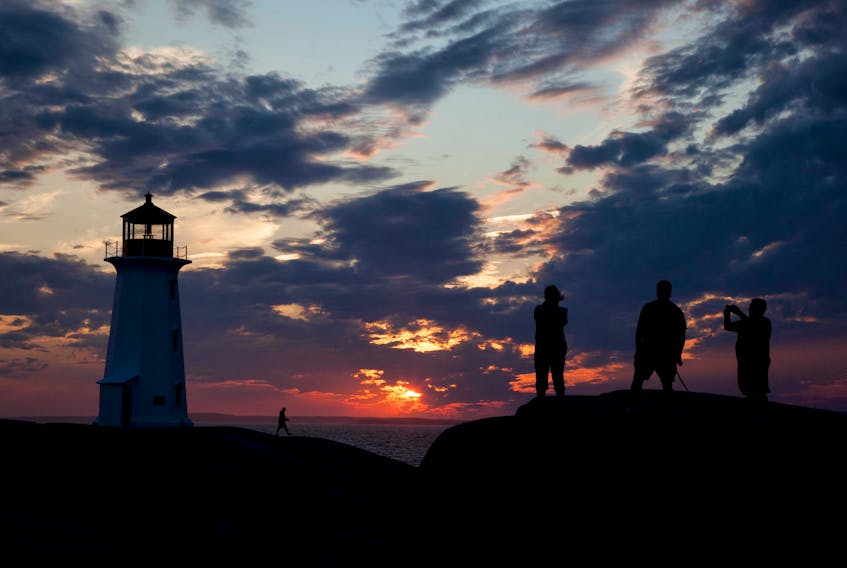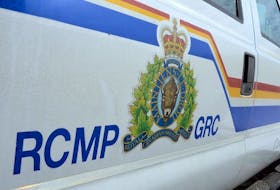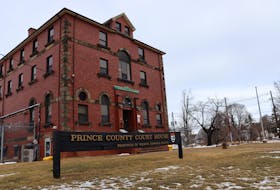Starting July 3, Atlantic Canadians will be able to travel freely among all four provinces without having to self-isolate.
The long-awaited announcement about a so-called Atlantic bubble came from the four premiers early Wednesday afternoon. The news comes as new and active COVID-19 cases have remained low or at zero across the region for the last few weeks.
The lifting of restrictions means that interprovincial travel without the requirement to self-isolate will be permitted in Newfoundland and Labrador, New Brunswick, Prince Edward Island and Nova Scotia. Visitors from other Canadian provinces and territories must adhere to the local entry requirements in place in each of the four jurisdictions, a joint news release indicates.
The premiers — Dwight Ball of Newfoundland and Labrador, Blaine Higgs of New Brunswick, Dennis King of Prince Edward Island and Stephen McNeil of Nova Scotia — said the decision was guided by advice from their medical officers of health “and will continue to be closely monitored.”
Each province will choose their own processes to track and monitor travellers — Atlantic visitors to Prince Edward Island, for example, will be required to complete a self-declaration form online and provide a copy of the completed form at points of entry to the province.
McNeil said checkpoints into the provinces will be maintained and anyone coming in will have to identify with an Atlantic Canadian ID or proof of isolation.
Other Canadian visitors to the Atlantic provinces that have self-isolated for 14 days may also travel within the region.
McNeil said travellers from outside of Canada will be issued a document via email that will allow them to travel within the region once they’ve provided information about when they arrived, how long they self-isolated and where they self-isolated.
Newfoundland and Labrador will not allow entry to outside seasonal residents or cottagers at this time, while the Maritimes will allow seasonal travellers free travel once they have completed a 14-day quarantine.
While P.E.I. does not yet have plans in place to open up to visitors from other provinces, both McNeil and Ball said Wednesday their provinces are gearing up to welcome travellers from the rest of Canada in July.
If all goes well, Ball said, the plan in Newfoundland and Labrador to further ease travel restrictions will start on Friday, July 17, two weeks after the opening of the Atlantic bubble.
“This can only be possible if we get favourable results in the days and weeks leading into July 17,” Ball cautioned.
McNeil was less specific. He said Nova Scotia will reassess the situation with the hope of opening to the rest of Canada in the second or third week of July.
Cautiously optimistic
With millions of visitors flocking to the region and contributing billions of dollars to the economy in a normal year, there’s no question that businesses across Atlantic Canada are feeling the pinch from the border closures.
Business owner Jennifer Ridgeway said in the summer, visitors from out of province account for roughly 75 per cent of business at her Charlottetown shops, where it has been “very quiet’’ compared to a regular, pre-pandemic June.
“I guess that I could say that I’m cautiously optimistic,” says Ridgeway.
“I think everybody is hoping to make enough money to keep their staff on.”
She says the Atlantic bubble could help keep some businesses from going bankrupt this summer.
Rosemary Lee, owner of The Eden Hall Inn on West Street in Charlottetown, called the bubble “good news,” but is worried about a possible spread of COVID-19. She is struggling with whether to stay open.
David Kogon, the mayor of Amherst, N.S., which shares a border with Sackville, N.B., said small to medium-sized businesses in the two communities have been particularly hard hit by the border closures and has been pushing for an exception.
“The two economies are very intertwined,” he said. “We're thrilled that they finally opened up the Atlantic region.”
Kogon said he sees both pros and cons of opening the borders to the rest of Canada.
“I know talking with people here, there are some concerns in our community about the safety of allowing Quebec or Ontario residents … but from the economic perspective it would obviously be very welcome,” he said.
On Tuesday, the federal government announced it will inject $16 million into Atlantic Canadian tourism to help the industry. There has also been an extra effort to convince residents to explore their own provinces — Destination Canada is funding targeted marketing campaigns in each province to encourage local tourism, and Newfoundland and Labrador announced Wednesday a $450,000 tourism campaign aimed entirely at in-province travellers.
Second wave
Even with the lifting of travel restrictions, the premiers stressed the need to continue to adhere to public health guidelines such as physical distancing, wearing masks, washing hands regularly and staying home if feeling unwell.
“This is not the same as it was a year ago. You have to continue to follow those health protocols,” McNeil said.
As for concerns about a potential second wave of the coronavirus, the premiers say they’re prepared.
McNeil said the provinces and their health systems are better equipped to deal with COVID-19 in the event of another outbreak.
“There's evidence globally that the countries that have continued to practice good public health protocols … have continued to keep the second wave flat and not have it put the kind of pressure on their health-care system and the economy as their first wave,” he said.
King said he is willing to consider reinstating some restrictions in the event of another outbreak.
"It wouldn't necessarily mean that if we had one case that we would back the bubble off,” King said.
"We know we're moving into some uncharted waters here. And if we do need to, because the information requires us to pull back, we're very prepared to do that.”
With files from Stu Neatby and David Maher









